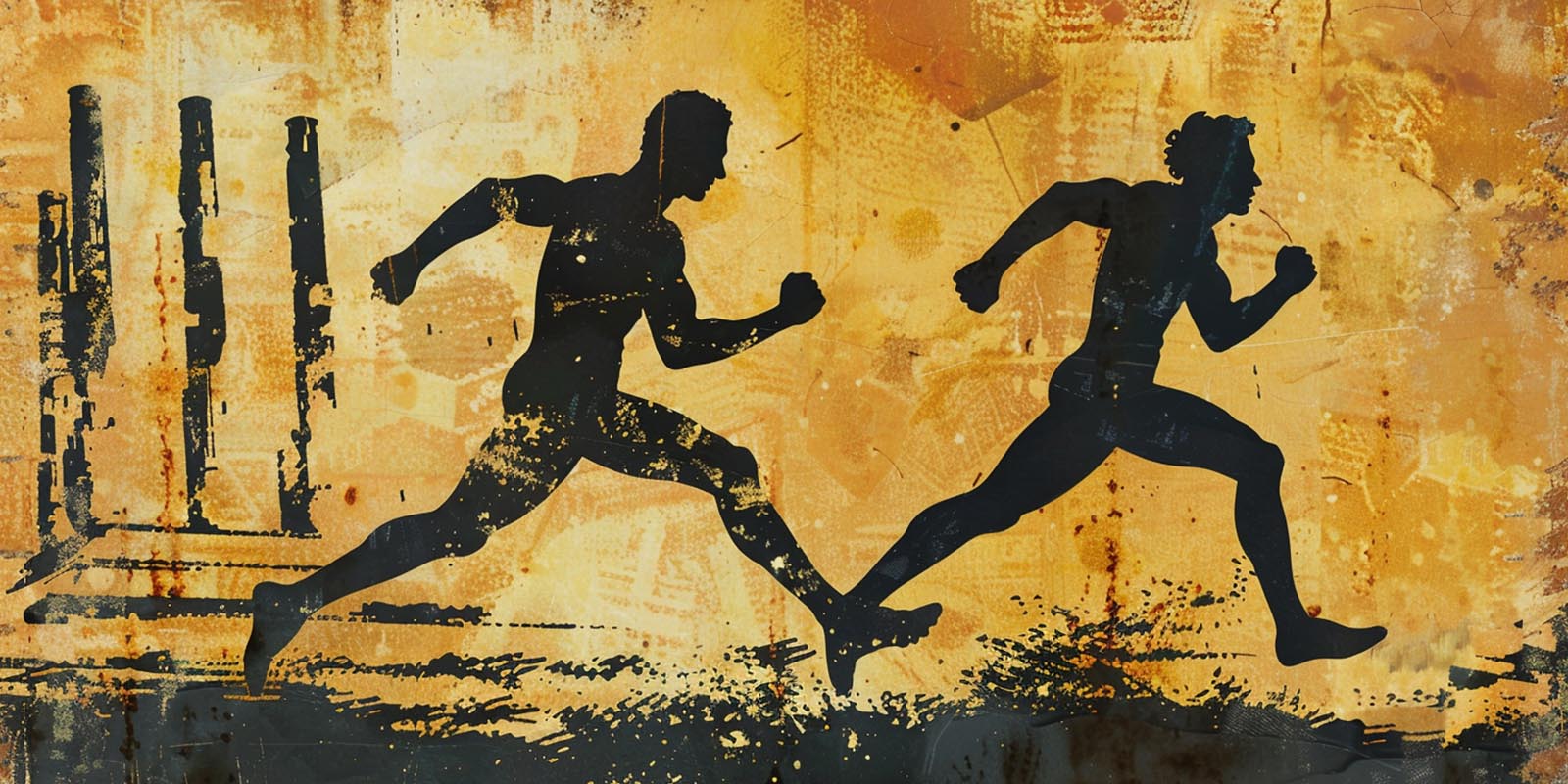

Ancient Greek athletic festivals were central to Greek culture, showcasing physical prowess, competitive spirit, and religious devotion. These festivals, held in honor of various gods, featured athletic competitions that drew participants and spectators from across the Greek world. The most famous of these festivals were the Olympic Games, which inspired a legacy of sportsmanship and athletic excellence that endures to this day.
The Olympic Games: The Olympic Games, held every four years in Olympia, were the most prestigious of the ancient Greek athletic festivals. Established in 776 BCE, the games were dedicated to Zeus and featured events such as running, wrestling, boxing, pankration (a form of mixed martial arts), and the pentathlon, which included discus, javelin, long jump, running, and wrestling. Victorious athletes were celebrated and awarded olive wreaths, symbolizing honor and glory.
The Pythian Games: The Pythian Games, held every four years at Delphi, were second in importance only to the Olympics. Dedicated to Apollo, these games included musical and poetic competitions in addition to athletic events. The Pythian Games celebrated Apollo's victory over the serpent Python and attracted participants from all over Greece, fostering a sense of cultural unity and artistic expression alongside athletic competition.
The Isthmian Games: The Isthmian Games took place every two years near Corinth, in honor of Poseidon, the god of the sea. These games featured similar athletic events to the Olympics, as well as chariot races and contests in music and poetry. The Isthmian Games were known for their vibrant celebrations and drew large crowds, contributing to the cultural and religious life of the region.
The Nemean Games: The Nemean Games were held every two years at Nemea, in honor of Zeus. These games included a range of athletic events, with a particular emphasis on combat sports such as wrestling and boxing. The Nemean Games were renowned for their rigorous competition and the heroic status accorded to their victors, reflecting the Greek ideal of physical excellence and honor.
Athletic Events and Training: The athletic events at these festivals were a testament to the Greek emphasis on physical fitness and competitive spirit. Athletes underwent extensive training in gymnasia, where they honed their skills and prepared for competition. Events such as the stadion (a short foot race), the diaulos (a double stadion race), the dolichos (a long-distance race), and the hoplitodromos (a race in armor) tested speed, endurance, and agility. Combat sports like boxing, wrestling, and pankration showcased strength and technique.
Religious and Social Significance: Athletic festivals were deeply intertwined with Greek religion and society. The games were held in conjunction with religious ceremonies, sacrifices, and feasts, honoring the gods and seeking their favor. These festivals also served as important social gatherings, where city-states displayed their wealth and power, forged alliances, and celebrated shared cultural values. The communal aspects of the festivals reinforced social cohesion and a sense of collective identity among the Greeks.
Women and Athletic Festivals: While the major athletic festivals were predominantly male affairs, women had their own athletic competitions, the most notable being the Heraean Games, held in Olympia in honor of Hera. These games featured foot races for young women and served as a counterpart to the male-dominated Olympic Games. The participation of women in these events reflected the varied roles of gender in Greek athletic and religious life.
Legacy and Influence: The legacy of ancient Greek athletic festivals is profound, influencing the development of sports and competitive events throughout history. The ideals of athletic excellence, fair competition, and the celebration of human potential inspired the revival of the Olympic Games in the modern era. Ancient Greek athletic festivals exemplified the pursuit of physical and moral excellence, leaving an enduring impact on Western cultural and sporting traditions.

The ancient Olympic Games originally included only one event, the stadion race, a sprint of roughly 192 meters. Over time, the games expanded to include a variety of athletic contests, and by the 5th century BCE, the program featured events such as chariot racing, wrestling, boxing, and the pentathlon.
Ancient Greek art and architecture, with its harmonious proportions and timeless elegance, continue to inspire awe and admiration millennia later.
Discover
Greek mythology, a rich tapestry of gods, heroes, and mythical creatures, captivates the imagination with its tales of love, betrayal, and epic adventures that delve into the depths of the human psyche.
Discover
Ancient Greek history, marked by remarkable achievements in democracy, philosophy, and warfare, shaped the foundation of Western civilization, leaving an indelible legacy of innovation and cultural influence that continues to resonate to this day.
Discover
The ancient Greek Olympics, held in Olympia every four years, celebrated athleticism, unity, and cultural pride, serving as a testament to the enduring spirit of competition and excellence that transcends time and borders.
Discover
Ancient Greek wars, such as the Persian Wars and the Peloponnesian War, were pivotal conflicts that shaped the course of history, highlighting the struggle for power, independence, and the clash of civilizations in the ancient Mediterranean world.
Discover
Ancient Greek culture and society, characterized by its emphasis on art, philosophy, and civic engagement, fostered a vibrant intellectual and social landscape where innovation flourished, democracy thrived, and the pursuit of knowledge and excellence was celebrated as fundamental values of civilized life.
Discover
Find out more about ancientgreece.com